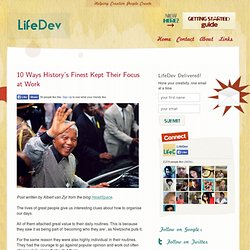

About: What you know is worth money! A 12-week intensive by Dr. Joel Orr joel@joelorrcoaching.com You want to write a book. I’ll help you do that—quickly and easily. But then what? What role will the book play in your business and your life? Dear Colleague, I help people write and publish books Helping business people write books has taught me: Having a book is a great thing for your business, but it’s not enough. Why the Internet? See, when you write a book, you have laid out your expertise for all to see. Now that you’ve got all this content, you can deliver your expertise in a variety of forms—in ebooks, teleseminars, courses, and more—that can ultimately create a veritable information empire. What’s up with most Internet marketing courses? So I have been looking around for a simple, inexpensive course to which I might direct my clients—something they can master in their spare time, while continuing to work their business.
They are overwhelming . Like me, my clients have work to do. And it is. I want a results-based system.
Why Do Some People Learn Faster? The physicist Niels Bohr once defined an expert as “a person who has made all the mistakes that can be made in a very narrow field.”

Bohr’s quip summarizes one of the essential lessons of learning, which is that people learn how to get it right by getting it wrong again and again. Education isn’t magic. Education is the wisdom wrung from failure. A new study, forthcoming in Psychological Science, and led by Jason Moser at Michigan State University, expands on this important concept. The question at the heart of the paper is simple: Why are some people so much more effective at learning from their mistakes?
The Moser experiment is premised on the fact that there are two distinct reactions to mistakes, both of which can be reliably detected using electroenchephalography, or EEG. The second signal, which is known as error positivity (Pe), arrives anywhere between 100-500 milliseconds after the mistake and is associated with awareness. 10 Ways History’s Finest Kept Their Focus at Work.
Post written by Albert van Zyl from the blog HeadSpace.

The lives of great people give us interesting clues about how to organise our days. All of them attached great value to their daily routines. This is because they saw it as being part of ‘becoming who they are’, as Nietzsche puts it. For the same reason they were also highly individual in their routines. They had the courage to go against popular opinion and work out often strange daily plans that suited them. This is perhaps the first lesson that we can learn – that it takes courage and resolve to design and stick to a routine that suits you. There are at least 10 other lessons that the daily routines of the great can teach us: